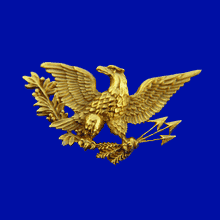Tuesday, October 11, 2011
In Defense of Christopher Columbus
With each passing year, a vocal minority uses Columbus Day as an occasion to clamor for the rebranding of the holiday as “Native American Day,” if not its outright abolition. Aside from cute slogans about colonialism and Columbus’ accidental discovery of the New World, there is little substance to these objections. It is true that Columbus did not prove the earth was round and he was not the first person to set foot in America. However, for good or for ill, Columbus’ voyages changed the course of history.
The principal objection is that Columbus symbolizes a legacy of genocide and brutality that we should not celebrate. However, the Europeans were no worse than the native peoples. In particular, the early Spanish explorers documented with horror the practices of human sacrifice and cannibalism by the Aztecs and other indigenous cultures. If roles were reversed and the Aztecs had discovered Europe instead of the other way around, the clash of civilizations would have been just as brutal and bloody.
Alternatively, the tired cliché of our time is that Christopher Columbus did not discover America because there were people already here. However, just because a thing is seen does not mean it is understood. Before Benjamin Franklin’s famous kite experiment, people knew that lightning existed, but they did not understand its significance. In the same way, the native peoples of the Americas did not realize that they inhabited a continent in a larger world until Columbus made contact in 1492.
That said, one could reasonably argue that the credit should go to Leif Ericson, who set foot on Newfoundland around the year 1000. However, Ericson was illiterate, and the only accounts of his voyage that survive were passed down by oral tradition for several centuries before being written down, by which time the only Norse settlement in North America had long since been abandoned. In contrast, Columbus was an expert navigator who kept detailed accounts of his voyages so that others could follow his route.
As a result, Columbus is just as important to the history of America as the first Thanksgiving. There are hundreds of towns, cities, mountains, rivers, roads, parks, museums, schools, monuments, statues, and sports teams—and even the ill-fated Space Shuttle Columbia—all dedicated to the memory of the man who truly discovered the American continent. We can lament that the early European explorers did not share our modern cultural sensibilities and candidly admit to Columbus’ personal failings, but as Americans, we cannot condemn Columbus’ achievement without condemning our entire existence.
Subscribe to:
Post Comments (Atom)



No comments:
Post a Comment